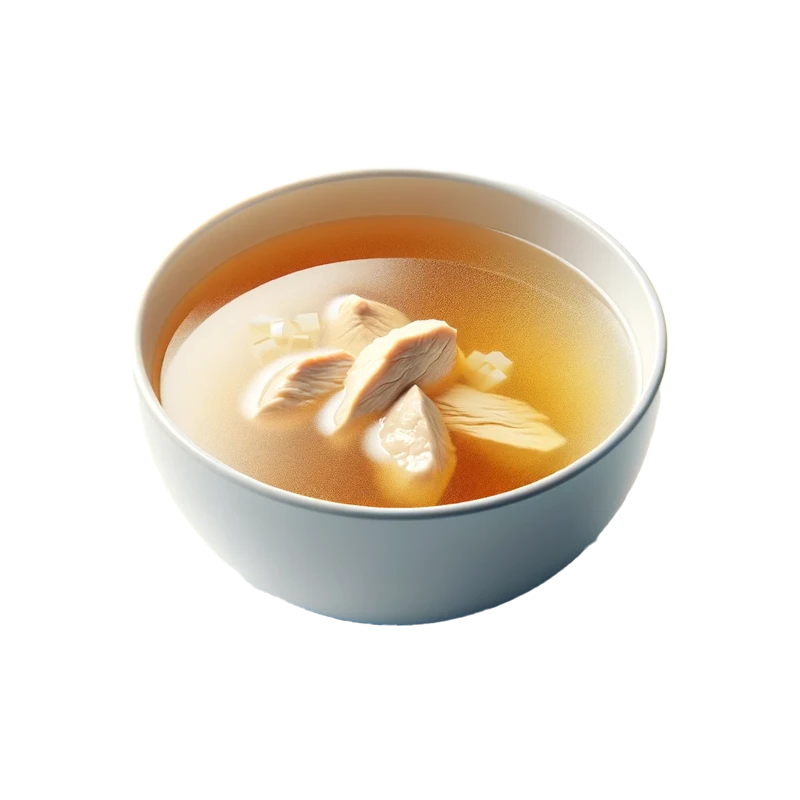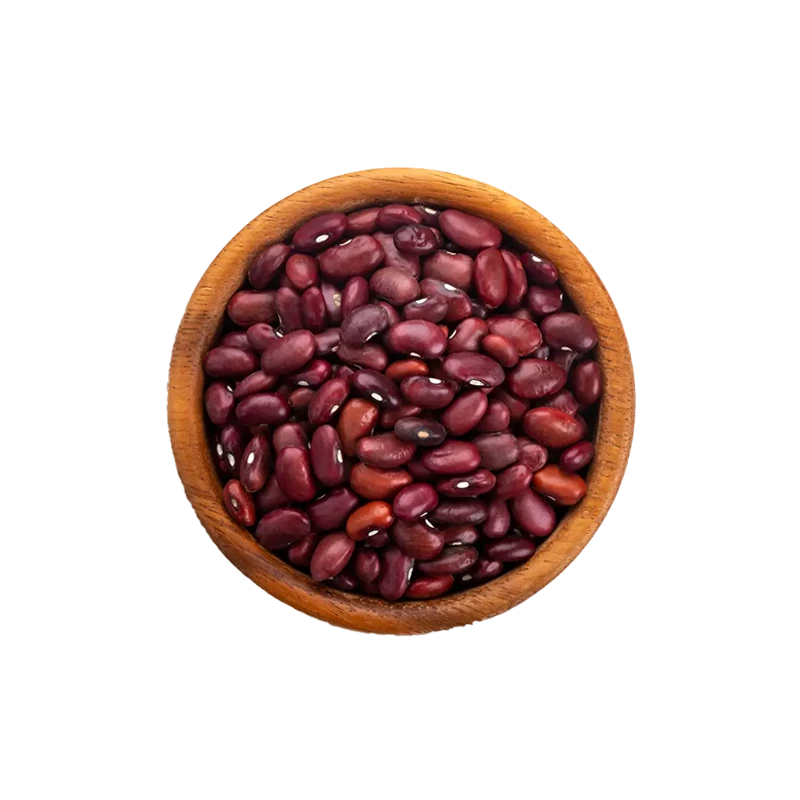Chicken Broth — Nutrients, Health Benefits, and Shopping Tips

Written by Listonic Team
Last update on September 4, 2024
Nutrients
Nutrition facts
Amount per 100 g
Calories
🔥 17 kcal
| Nutrients per: 100 g | Value | % Daily Value* |
|---|---|---|
| Carbs | 1 g | 0.36% |
| Fiber | 0 g | - |
| Sugars | 0 g | - |
| Glycemic Index | 0 | - |
| Protein | 3 g | 6% |
| Sodium | 140 mg | 6.09% |
| Total Fat | 1 | 1.28% |
*The % of Daily Value (DV) tells you how much a nutrient in a serving of food contributes to a daily diet. 2,000 calories a day is used for general nutrition advice.
17
🍏 Low-Calorie Foods
Key takeaways
Health benefits
- Supports digestive health due to its easy-to-digest nature and nutrients that soothe the gut lining.
- Rich in essential nutrients such as vitamins, minerals, and amino acids, which support overall health and well-being.
- Promotes hydration, providing a flavorful way to increase fluid intake.
- May support joint health due to its collagen content, which helps maintain healthy joints and connective tissues.
Health risks
- High sodium content in many commercial varieties, which can contribute to hypertension and increased cardiovascular risks when consumed frequently.
- Potential for preservatives and additives in store-bought broths, which may cause adverse reactions in sensitive individuals.
- Risk of contamination with harmful bacteria if homemade broth is not properly prepared or stored.
- Low protein content in some broths, which may not provide significant nutritional benefits compared to other protein sources.
How to choose chicken broth
Choose chicken broth that has a clear appearance and a rich, savory aroma. It should list chicken as a primary ingredient and be low in sodium. Look for broth that uses organic chicken and natural seasonings for the healthiest option.
Do not buy chicken broth that appears cloudy or has sediment at the bottom, as this can suggest over-processing or poor quality. Good chicken broth should enhance dishes with a balanced flavor without overpowering other ingredients.

How to store chicken broth
Chicken broth should be stored in the refrigerator after opening. Keep it in an airtight container to maintain its flavor and prevent contamination. Properly stored, chicken broth can last up to five days.
Light and air exposure can degrade the quality of chicken broth. It’s important to avoid storing it in the original can after opening, as this can affect the taste. Freezing the broth in small portions can extend its shelf life up to three months, keeping it fresh and ready for use.
✅ Extra Tip
How long does it last?
Chicken broth can last for 4-5 days in the refrigerator once opened. Unopened, it can last for 1-2 years when stored in a cool, dark place. For longer storage, chicken broth can be frozen for up to 6 months.
What to do with leftovers?
Leftover chicken broth can be used in a variety of dishes. Use it as a base for soups, stews, or chili, where its rich flavor adds depth to the dish. Chicken broth is also great for cooking grains like rice, quinoa, or couscous, infusing them with extra flavor.
Use chicken broth in a sauce or gravy for meats, or add it to a braising liquid for slow-cooked dishes. If you have a lot of chicken broth, consider freezing it in portions to use later or reducing it to make a concentrated stock. Chicken broth can also be used to deglaze pans after cooking meats, capturing all the flavorful bits stuck to the pan. For a simple, nourishing meal, sip chicken broth on its own or use it to cook vegetables or noodles.
👨⚕️️ Medical disclaimer
How chicken broth supports specific health conditions
Chicken broth is rich in collagen, supporting joint health by maintaining cartilage and reducing joint pain. It also contains amino acids, which promote muscle health and tissue repair. Chicken broth is hydrating and easy to digest, making it beneficial for digestive health. Additionally, its mineral content, such as calcium and magnesium, supports bone health, while its immune-boosting properties make it a helpful remedy during cold or flu recovery.
Discover products from other categories
Listonic Team
Fact-checked
Our editorial team checked this article to make sure it was accurate at the time of publishing it.
Get the top-rated shopping list app

chicken broth







